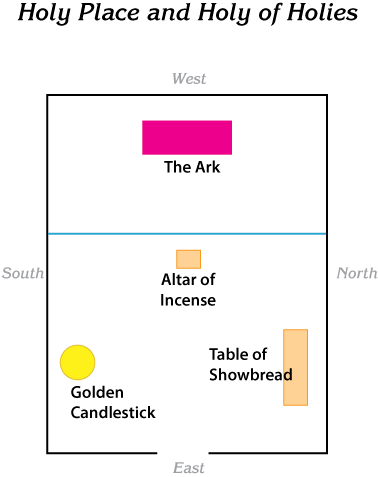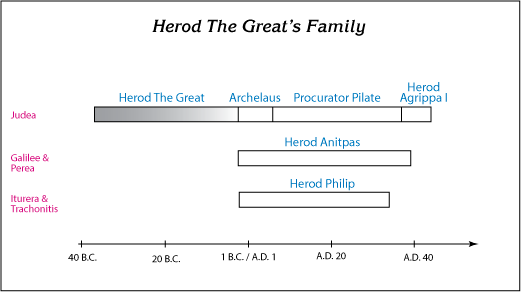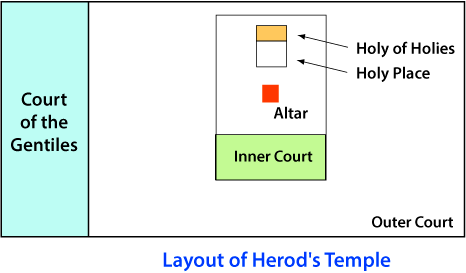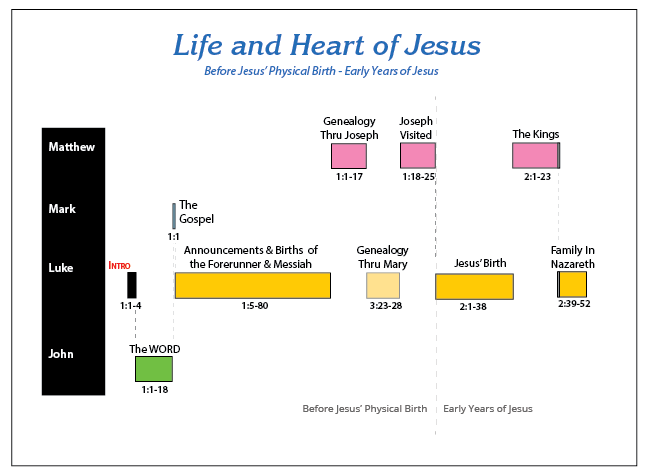During our last study (John 1:1-18), we saw that Jesus was described as the Word and the Light. As the Word He was and is God. There has never been a time when God did not exist. He was existing before the beginning began. As the Light, Jesus came to give us truth. His glory was displayed in His humility, gentleness, words, actions, miracles, signs, and wonders. Jesus was God in human flesh! That was the Apostle John’s message – Jesus was God in human flesh. When we come to the gospel of Mark, the Holy Spirit tells us wonderful news – Jesus is the “Son of God” (Mark 1:1). The word “gospel” means “good news,” and that is what Mark announces. Some have wondered what the expression “Son of God” means. Maybe you have wondered, or maybe someone has told you what it means. But did you know that Jesus actually defines the expression for us? Let us look at what He said about the expression.
Son of God
In John 10:31, we discover that some Jewish religious leaders wanted to kill Jesus by stoning Him to death. So Jesus asked them why they wanted to stone Him. Here is their answer,
. . . For a good work we do not stone You, but for blasphemy; and because You, being a man, make Yourself out to be God. John 10:33 (NASB)
So Jesus throws them a puzzling statement when He quotes Psalm 82:6 and tells them that they are gods. The Psalm was a derogatory statement about the leaders of that time who were acting like gods in the way that they treated others. It was a rebuke. Then Jesus makes this statement.
. . . do you say of Him, whom the Father sanctified and sent into the world, “You are blaspheming, because I said, “I am the Son of God”? John 10:36 (NASB)
Jesus connects “blasphemy” with the expression “Son of God.” The religious leaders had accused Him of blaspheming – of claiming to be God – because He had said that He was the “Son of God.”
Both the gospel of John and the gospel of Mark open by declaring to the world – to anyone who reads their good news – that God came in human flesh and His name is Jesus! John and Peter had seen Him, spoken with Him, watched Him, and were witnesses to His signs, miracles, and wonders. They knew who He was and is!

Zacharias The Priest
The gospel of Luke picks up the historical events surrounding Jesus’ birth here on earth. The prophets had been silent for 400 years. The last book of the Old Testament was Malachi, and nothing had been recorded since. After 400 years, the world was different. The prophecy of Daniel 9:25-26 was soon to be fulfilled. The time for the Messiah to come was near. The Greek Empire had been defeated by Rome and the new Roman empire now controlled Palestine and the city of Jerusalem. The time had come for Messiah to arrive. The time for the forerunner of the Messiah, the one who would prepare the people for the Messiah, had come.
So Luke 1:5 opens by telling us when the great news about the forerunner of the Messiah had started to unfold.
In the days of Herod, king of Judea, there was a priest named Zacharias, of the division of Abijah; and he had a wife from the daughters of Aaron, and her name was Elizabeth. Luke 1:5 (NASB)
Zacharias was a priest during the reign of Herod, king over Judea. He was a simple but very spiritual man whose life was about to be turned upside down. He was about to have the greatest experience of his life. It is commonly believed that Herod died in 4 B.C., but new evidence suggests that Herod may have died as late as 2 B.C. The two year difference is not significant, but it is important to note that Herod the Great was still alive. This helps us determine the period of time in which these events occurred.

Priestly Duties
The priest was part of the division of Abijah. Abijah was one of twenty-four divisions of the Levitical priests. 1 Chronicles 23-24 lists all of the twenty-four divisions. Abijah is found in 1 Chronicles 24:10. King David had divided the Levitical priests into divisions when there were too many priests to perform the work at the temple. According to David’s guidelines, each division served at the temple twice a year and at the major holidays. Fifty-six priests from one of the divisions served each day. It has been estimated that there were as many as 8,000 to 18,000 priests throughout Israel at that time. Consequently, the priest who offered incense at the Altar of Incense in the Holy Place each day was determined by a random lot, as we will see shortly. However, a priest could only offer this service once in his lifetime.
The Couple — Zacharias and Elizabeth
Zacharias and Elizabeth were both descendants of the Levitical priestly line. The Holy Spirit tells us that God considered both of them to be righteous individuals.
They were both righteous in the sight of God, walking blamelessly in all the commandments and requirements of the Lord. But they had no child, because Elizabeth was barren, and they were both advanced in years. Luke 1:6-7 (NASB)
We discover that they had no children, and both of them were now senior citizens. Zacharias had been faithfully serving as a priest for many years while Elizabeth mourned because she had never had a child (Luke 1:25). She must have been a godly woman who struggled quietly and with grace. What an awesome holy couple they were! Difficulties in life either grow us or break us. It is our choice.
Zacharias’ Dream
We do not know what year or day; but on one special day, Zacharias had the desire-of-his-life finally come true.
Now it happened that while he was performing his priestly service before God in the appointed order of his division, according to the custom of the priestly office, he was chosen by lot to enter the temple of the Lord and burn incense. Luke 1:8-9 (NASB)
He would finally be able to enter the Holy Place and offer incense to God. This was a once in a lifetime event. Can you imagine his excitement? His heart may have been skipping beats, and his blood pressure may have been high. I would imagine that he was nervous. His emotions were probably all mixed together. This was a wonderful privilege.
Before a priest entered the Holy Place to offer incense, it was the custom for the people who were standing between the Holy Place and the Bronze Altar to leave the courtyard area and to begin praying. Everyone would be praying for him as he entered the Holy Place. Zacharias was going to enter the Holy Place alone. There would be no one nearby.
And the whole multitude of the people were in prayer outside at the hour of the incense offering. Luke 1:10 (NASB)
Do you wonder how he felt as he entered the Holy Place with everyone being at a distance?

Fear and Blessing
As Zacharias entered he became fearful when he saw an angel standing next to the very altar on which he was to offer incense.
And an angel of the Lord appeared to him, standing to the right of the altar of incense. Zacharias was troubled when he saw the angel, and fear gripped him. Luke 1:11-12 (NASB)
The Greek word translated as fear has the idea that he was “full of fear.” He was not just fearful. He was full of fear. He was terrified. He may have wondered if he was going to die. We are not told. So the angel responds with these words,
. . . Do not be afraid, Zacharias, for your petition has been heard, and your wife Elizabeth will bear you a son, and you will give him the name John.) Luke 1:13 (NASB)

The angel did not announce that a prophecy was going to be fulfilled, that the forerunner was coming, or that Jesus was coming. He announced that their prayer request had been answered. It is amazing how many times I have read this passage thinking that the passage was only about the birth of John the Baptist. But there is something more to this passage. The angel did not come simply to announce that the forerunner’s birth, but to announce their prayer request or “petition” had been granted. The Greek word for “petition” is deesis. It means “urgent request.” This is not the normal word for prayer or petition. This word has a sense of urgency to it. Zacharias and Elizabeth had been urgently praying that God would give them a son. This was a holy couple urgently asking for a son. In James we read,
. . . The effective prayer of a righteous man can accomplish much. James 5:16 (NASB)
The Greek word for “prayer” in this verse is also deesis. Zacharias and Elizabeth were a righteous couple, so God honored their urgent, energetic prayer.
God showered blessing upon blessing on Zacharias when He granted their petition while he was having a once in a lifetime experience in the Holy Place. God could have chosen some other time to send the angel, but He did not. God sent Gabriel (Luke 1:19) when Zacharias was having a lifelong wish fulfilled. God timed the announcement wonderfully. Did God also control the lot that selected Zacharias? It would be just like our loving God to do that in order to add blessing upon blessing. God is in the business of doing this for those who call upon His name. He answers the “petitions” of His righteous ones.
The Son — John the Baptist
We discover next that the angel told Zacharias that his son’s name would be John. Later we will discover that he is John the Baptist.
You will have joy and gladness, and many will rejoice at his birth. For he will be great in the sight of the Lord; and he will drink no wine or liquor, and he will be filled with the Holy Spirit while yet in his mother’s womb. And he will turn many of the sons of Israel back to the Lord their God. It is he who will go as a forerunner before Him in the spirit and power of Elijah, TO TURN THE HEARTS OF THE FATHERS BACK TO THE CHILDREN, and the disobedient to the attitude of the righteous, so as to make ready a people prepared for the Lord. Luke 1:14-17 (NASB)
John will be a Nazarite and will be filled with the Holy Spirit from his birth. The restriction on drinking alcoholic beverages appears to mean that he would be a Nazarite. People who took a Nazarite vow did not drink alcoholic beverages and did not shave or cut their hair (Numbers 6:1-5). The angel also announces that the Holy Spirit would dwell within John at his birth. This implies that John was dedicated to God throughout his life, starting at birth.
But the most stunning news to Zacharias would be that not only will he have a son, but that his son will be the one who announces the coming of the Messiah. The angel quotes Malachi 4:5-6.
Behold, I am going to send you Elijah the prophet before the coming of the great and terrible day of the LORD. He will restore the hearts of the fathers to their children and the hearts of the children to their fathers, so that I will not come and smite the land with a curse. Malachi 4:5-6 (NASB)
This prophecy was given to the prophet Malachi and to us as a sign as to when the Messiah would come.
Conclusion
There are Christians who have funny views about God. They believe that God is all sweetness and sugar and does not mean what He says. If God says that He honors the urgent, energetic prayer of a holy man, it implies that He does not answer the prayer of an unrepentant man or woman who is living for himself/herself. One who loves Jesus seeks to be holy even as He is holy (1 Peter 1:16).
Have you ever had an urgent request of the Lord? This couple did, and God granted their request because they were righteous. God honors the urgent prayer of righteous men and women. He always does! When God does, He sometimes adds blessing upon blessing. The key is a love for Him and holiness in life. Today there are some who say that God does not grant our requests because we lack faith. But God says the problem may be in your lifestyle. Is there holiness in your life or are you living for yourself? Is your desire to please a holy God? The effective prayer of a holy man is needed. Be holy as He is holy!
Have you asked, “Why did God give Zacharias and Elizabeth this son?” “Why was John born to an older couple and not a young woman such as Mary?” There is only one answer. God loved them greatly and deeply wanted to bless them.
Wow, what a thrill and what a God! God is the giver of great gifts. He answers the urgent request of a righteous couple at a great moment in Zacharias’ life and grants him the birth of a son whose ministry would be like Elijah’s. God is the giver of great gifts – not just a giver of good gifts, or of gifts. This was blessing upon blessing. God’s greatest gift was, “I love you, Zach and Liz!”